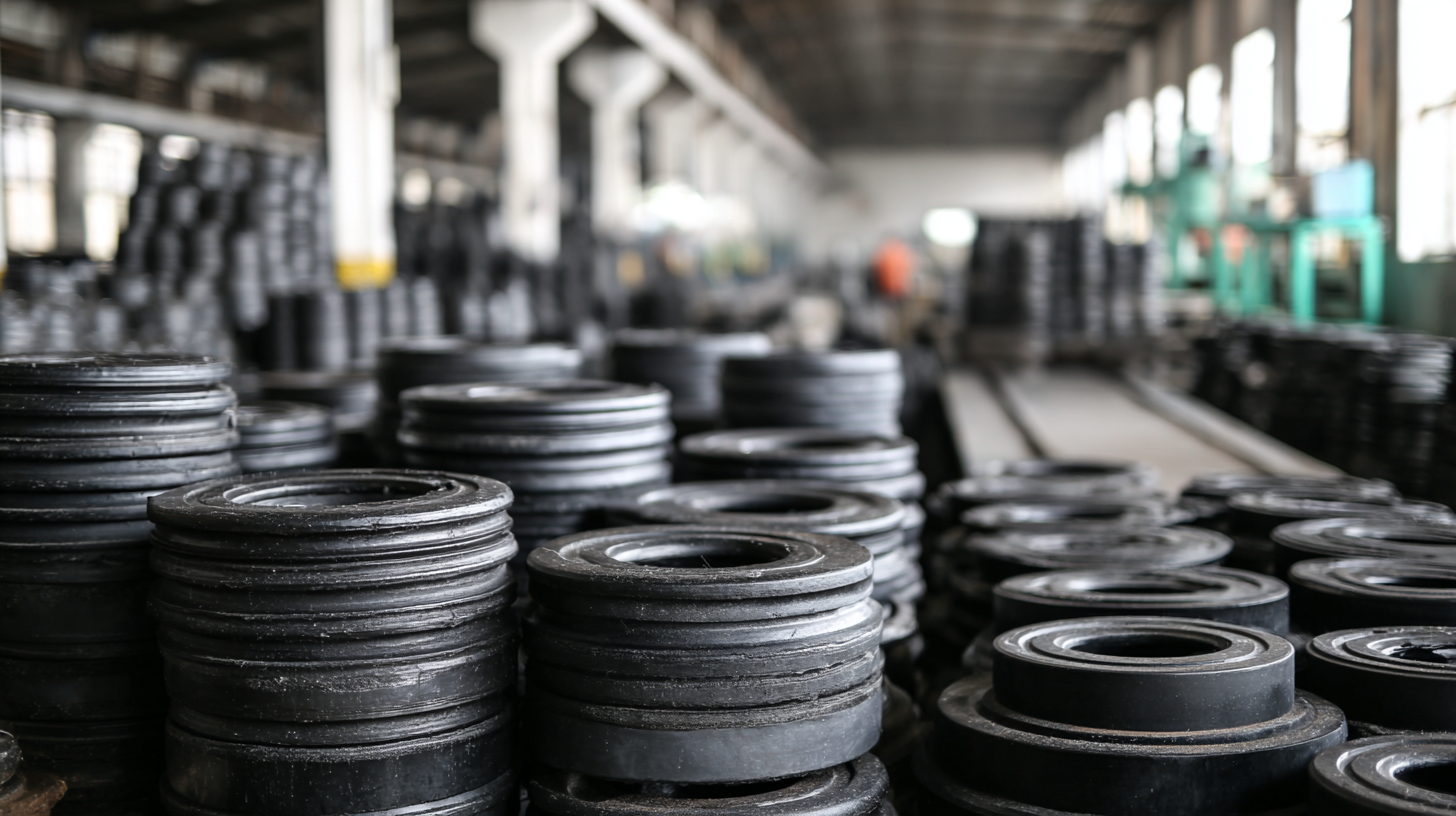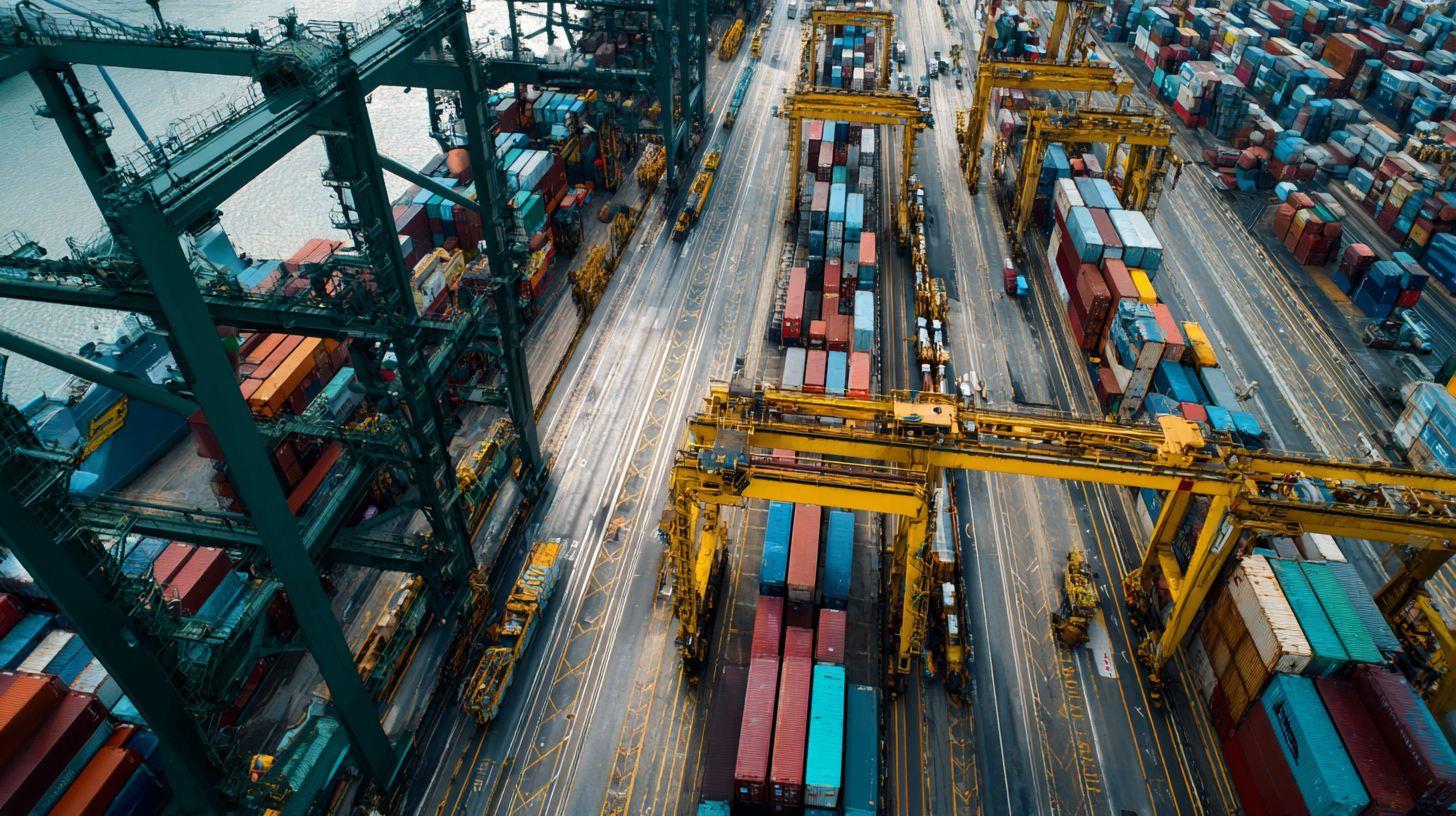Get a custom solution for free
-
Phone
-
E-mail
-
Whatsapp
-
Wechat


In today’s increasingly globalized marketplace, understanding the nuances of import-export certifications is crucial for businesses involved in the manufacturing and distribution of Rubber Mounts. These components, essential for noise and vibration control across various industries—ranging from automotive to aerospace—require compliance with specific regulatory standards to ensure their quality and safety. This blog post will explore the critical industry application cases of Rubber Mounts, illustrating how they play a pivotal role in enhancing performance in different sectors. Additionally, we will provide a comprehensive guide on navigating the complex import-export certification processes that can significantly impact the success of these products in international markets. By the end, readers will be equipped with the knowledge needed to strategically position their Rubber Mounts products for optimal market entry and compliance.

 In the competitive landscape of the global rubber mount industry, understanding the importance of import-export certifications is crucial for manufacturers and exporters alike. According to a recent report by MarketsandMarkets, the rubber mount market is projected to reach USD 7.84 billion by 2024, driven by the increasing demand from automotive and industrial sectors. Import-export certifications serve as a critical requirement to ensure that products meet international standards and regulations, which can significantly affect market access and consumer trust.
In the competitive landscape of the global rubber mount industry, understanding the importance of import-export certifications is crucial for manufacturers and exporters alike. According to a recent report by MarketsandMarkets, the rubber mount market is projected to reach USD 7.84 billion by 2024, driven by the increasing demand from automotive and industrial sectors. Import-export certifications serve as a critical requirement to ensure that products meet international standards and regulations, which can significantly affect market access and consumer trust.
Compliance with certifications such as ISO 9001 and ISO/TS 16949 not only guarantees product quality but also enhances a company's reputation in the global marketplace. A study published by Research and Markets highlights that businesses that adhere to recognized certifications observe a 20% increase in customer satisfaction and retention rates. As markets grow increasingly interconnected, obtaining the right certifications becomes a strategic advantage, enabling companies to navigate complex trading environments and establish a strong foothold in emerging markets.
As we approach 2025, the landscape of global trade regulations significantly impacts the export of rubber mounts. With increased scrutiny on manufacturing processes and environmental standards, exporters must stay informed about the evolving compliance requirements. Regulatory bodies worldwide are prioritizing sustainable practices, necessitating that rubber mount manufacturers adopt eco-friendly materials and manufacturing techniques to meet these new standards. This shift not only aims to protect the environment but also enhances the marketability of rubber mounts in regions where consumers are increasingly eco-conscious.
In addition to environmental regulations, tariffs and trade agreements continue to play a critical role in the export dynamics of rubber mounts. Countries are engaging in negotiations that can alter duty rates, thereby influencing competitiveness in various markets. Exporters should closely monitor these developments, as changes in trade agreements can open up or restrict access to key markets. Moreover, thorough understanding of documentation and certifications required will ease the export process, reducing delays and ensuring compliance. By preparing adequately, exporters can position themselves advantageously in the global market, optimizing their operations for the anticipated challenges and opportunities of the coming year.
When entering global markets, rubber mount manufacturers must be aware of essential certifications that ensure their products meet international standards. Among the most critical certifications is ISO 9001, which pertains to quality management systems. Achieving this certification demonstrates a commitment to consistent quality, enhancing credibility in competitive markets. Adherence to ISO 14001, which focuses on environmental management, is also vital as it showcases a company’s dedication to sustainable practices. This certification can often be a deciding factor for environmentally conscious customers and distributors.

Additionally, specific automotive industry standards, such as IATF 16949, are crucial for rubber mounts used in vehicles. This certification emphasizes defect prevention and the reduction of variation and waste in the supply chain, making it essential for companies targeting the automotive sector. Furthermore, compliance with regulations such as RoHS (Restriction of Hazardous Substances) and REACH (Registration, Evaluation, Authorisation, and Restriction of Chemicals) is mandatory for accessing European markets. These certifications not only ensure the safety and efficacy of rubber mounts but also aid manufacturers in establishing themselves as trustworthy suppliers on a global scale.
The demand for high-quality rubber mounts has seen a significant surge in the post-COVID market landscape. As businesses strive to recover and adapt to new operational challenges, the importance of robust and reliable components like rubber mounts has become evident. These essential parts not only help in vibration dampening but also enhance the durability and performance of machinery, making them critical for industries ranging from automotive to aerospace. Manufacturers now find themselves under pressure to deliver superior products that meet international standards, reflecting an increasing consumer awareness of quality and safety.
Market trends indicate a notable shift towards sustainable materials in rubber mount production. Companies are exploring eco-friendly options that cater to environmentally conscious consumers, contributing to a circular economy. Furthermore, the rise of e-commerce and globalization has expanded market access, prompting manufacturers to obtain the necessary import and export certifications to compete effectively. This transition highlights a transformative period where adhering to quality and environmental standards is not just beneficial but essential for survival in a rapidly evolving market ecosystem. As companies navigate these changes, their ability to produce high-quality rubber mounts will play a crucial role in securing their position in the global marketplace.
The global rubber mounts market is witnessing significant growth, driven by increased demand across automotive, aerospace, and industrial applications. According to a recent report by MarketsandMarkets, the market is projected to reach USD 9.5 billion by 2027, growing at a CAGR of 5.2% from 2022. As manufacturers look to expand their reach globally, navigating the maze of import-export certifications becomes imperative. These certifications serve not only as a regulatory requirement but also as a trust signal to consumers regarding product quality and safety.
To streamline certification processes, manufacturers can adopt various solutions. Leveraging technology, such as blockchain for enhanced traceability and compliance management systems, allows for improved oversight of certification pathways. According to a report from Grand View Research, implementing automated solutions can reduce certification processing time by up to 30%, enabling manufacturers to respond swiftly to market demands. Additionally, collaboration with third-party testing organizations can alleviate resource burden and ensure adherence to different regions' certification standards, ultimately facilitating smoother market entry and stronger competitive positioning.
| Certification Type | Region | Required Documents | Application Time (Days) | Approval Rate (%) |
|---|---|---|---|---|
| ISO 9001 | Global | Quality Manual, Audit Reports | 30 | 90 |
| REACH | European Union | Chemical Safety Report, SDS | 60 | 80 |
| UL Listing | North America | Product Samples, Test Reports | 45 | 85 |
| CE Marking | European Economic Area | Technical File, Risk Assessment | 40 | 88 |
| GOST-R | Russia | Test Reports, Application Form | 50 | 75 |
